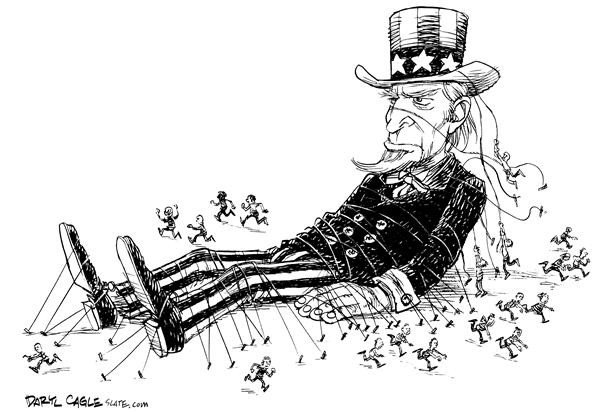Rebuilding Trust in Government
Trust: U.S. Origins Make Us Different
As a nation, we are often reminded of and criticized for our low level of trust in government. Looking at our history, this trust deficit should come as no surprise: skepticism of a strong central government is hard-wired into our national culture.
Our nation was born of a rebellion against a distant central government. Our federal system reflects our founders’ fears of centralized and concentrated power. Even our flag communicates decentralization with symbols of the states and colonies in the stars and stripes.
Not only is our skepticism historic, but in contemporary terms, our low level of trust in government is a feature, not a bug. Our democracy is designed to err on the side of decentralized rather than centralized government, which has fostered fifty independent laboratories of democracy.
But Let’s Not Get Carried Away
A healthy skepticism is one thing, but the current level of trust is lower than should be expected given the health of the economy. The tumultuous period of 1964 to 1968 saw a precipitous decline in trust attributable to Vietnam, racial strife and Watergate.
Concurrent with that, trust in government followed a pattern of rising and falling with consumer sentiment.
This held through George W. Bush, but that’s when the pattern breaks. Despite a pronounced upward trend in consumer sentiment in late 2011, polling shows no recovery of trust in government during the Obama or Trump presidencies.
Why Hasn’t Trust Recovered?
Several factors help explain why trust hasn’t recovered. A hangover of negative associations from the economic downturn is the simplest. Another is chronic congressional gridlock fueled by gerrymandering and fewer competitive elections.
A third is the perennial practice of politicians running against Washington, focusing on all that is wrong with government and vowing to “shake things up.” The power of this tactic has been amplified by more money and increasingly effective communications channels; the rise of cable television news and the 24-hour news cycle; and, more recently, the Internet and social media.
As hyper-partisanship and tribalism infected those channels, and Russia has preyed on our divisions, we’ve eclipsed a healthy skepticism. Attacks on the pillars of our democracy have become increasingly insidious, virulent and effective.
Changing the Narrative
In the absence of a countervailing force, vilifying Washington is corrosive. Can you imagine working for an institution that is the target of such derision? It’s not good for morale or productivity, much less retaining employees or attracting top talent. Every American pays a price for this damage to our democracy.
Imagine for a moment that “government” is a candidate for public office. Given its dismal trust ratings, many campaign consultants would advise “government” not to run for reelection. But the stakes are too high to back down. What then can be done to stabilize trust?
Acknowledging that critics have defined “government” as the enemy, the first priority is to frame government in a more constructive light. Employing the classic narrative architecture to communicate examples of success could help us see government through a different lens.
What is the threat to or opportunity that government can address for the broadest group of people in society?
What is standing in the way of resolution?
How can government help overcome that obstacle in ways the private sector cannot?
Coupled with timely responses to attacks on “government,” this type of approach could go a long way to improving morale, government effectiveness and thereby the ability to attract the best and brightest to public service. This doesn’t mean that we can’t be honest about the shortcomings of government, but we also need to be honest with ourselves about what we need government to do and how everyone benefits from a well-running system.
It’s been nearly fifty years since Walt Kelly penned his most famous Pogo comic strip, and the message still holds true today. Surveying a trash-strewn landscape, Pogo says to Porkypine, “we have met the enemy, and he is us.”
We wouldn’t allow another nation to denigrate the our government as we do. We would be wise to learn from Pogo and not be our own worst enemy.
Pogo, Walt Kelley, April 1971



